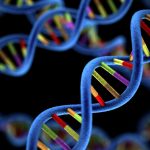 I’ve written a lot recently about the rise in genomic data, and the applications being developed on top of this. For instance, a recent project featuring IBM and the New York Genome Center (NYGC), The Rockefeller University and other NYGC member institutions.
I’ve written a lot recently about the rise in genomic data, and the applications being developed on top of this. For instance, a recent project featuring IBM and the New York Genome Center (NYGC), The Rockefeller University and other NYGC member institutions.
The work compared a number of techniques that are commonly used to analyze genomic data from tumor cells and healthy cells. It utilized Watson for Genomics technology to help interpret the genome data. The project revealed that Watson was able to provide actionable insights in just 10 minute, which compares to approximately 160 hours of human analysis.
The rise in genomics
It’s clear that such projects are only going to rise, so a recent paper from Professor Dame Sally Davies into the current state of genomic service provision in NHS England is an interesting read.
The report examines the potential for genomics to significantly improve the health of the nation. It provides clear evidence of its potential in areas such as screening, disease diagnoses and personalized prevention services.
The paper goes on to highlight some serious shortfalls in areas such as infrastructure, public engagement, organization of research and the provision of services, before providing clear recommendations on how each of these gaps can be addressed and access to genomic services widened.
Data challenges
It’s been a common theme of my posts over the past few months, but there are inevitable data challenges that go with the rise of genomics, and and report dedicates an entire chapter to the issue.
“The legal and ethical framework, evolution of patient and public understanding and the nature of consent are central in decisions about how data are obtained, shared, stored and used and reused in genomic medicine. As the National Data Guardian points out in her third report, in genomic medicine traditional models of consent and information governance are not always appropriate because the longstanding distinction between research and clinical care becomes blurred and because of the identifiable nature of genomic data. Electronic mechanisms are needed to replace the current practices for researcher access to data which include paper-based agreements between users, institutions and data access committees,” it says.
It’s undoubtedly going to be a crucial area, and the report is an invaluable contribution to the discussion.